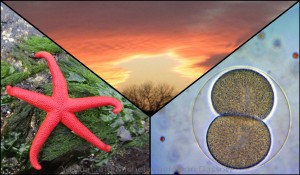Dr. Mickey von Dassow is a biologist who studies how biomechanics affects development-environment interactions. He received his PhD in Integrative Biology at UC Berkeley, studying how fluid flow affects colonial marine animals. As a postdoc (U. of Pittsburgh), he studied the mechanics of tissue movements that shape amphibian embryos. Currently he is a guest research scientist at the Duke Marine Lab, and works primarily on sea urchin embryos.

Can everyone do scientific research? I hope to convince you the answer is “yes.” I’m trying to develop an online platform (http://IGoR.wikidot.com) to help amateur scientists and other science enthusiasts do their own scientific research, while at the same time helping experienced scientists tap into the skills and creativity of a broader community. I hope you’ll love the idea and want to help me spark IGoR to life*.
Currently, the vast majority of scientific research is done by professionals supported by big institutions, such as universities, government labs, or corporations. It’s difficult for even a trained and experienced scientist to find the resources and time to do research without this backing. There are pockets of science where amateurs frequently make substantial contributions (e.g. amateur astronomy and taxonomy). However, it wasn’t that long ago that the majority of science was done by people – such as Darwin and Wallace – who were outside academia. In fact, the great intellectual revolutions that created modern science were not started by trained scientists: there were no trained scientists at the time!